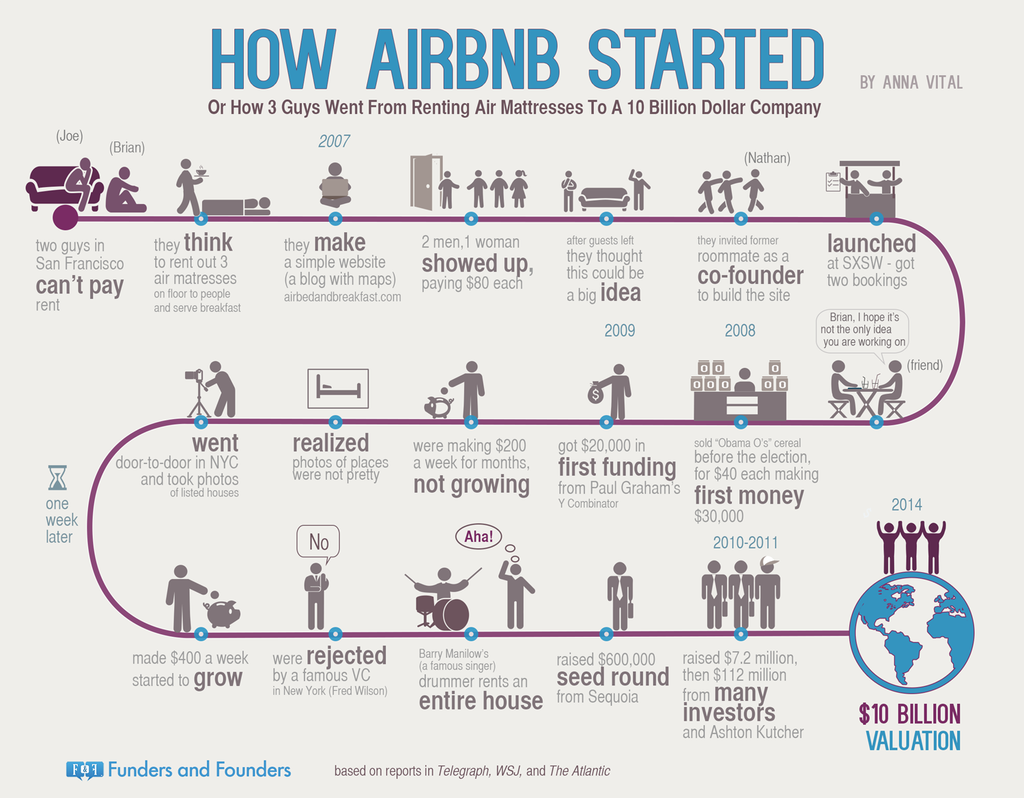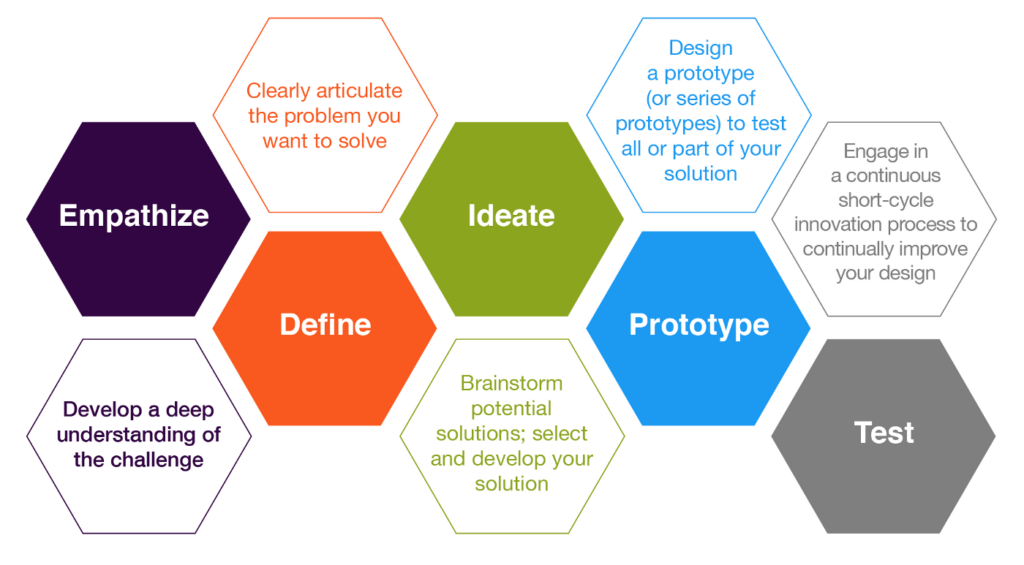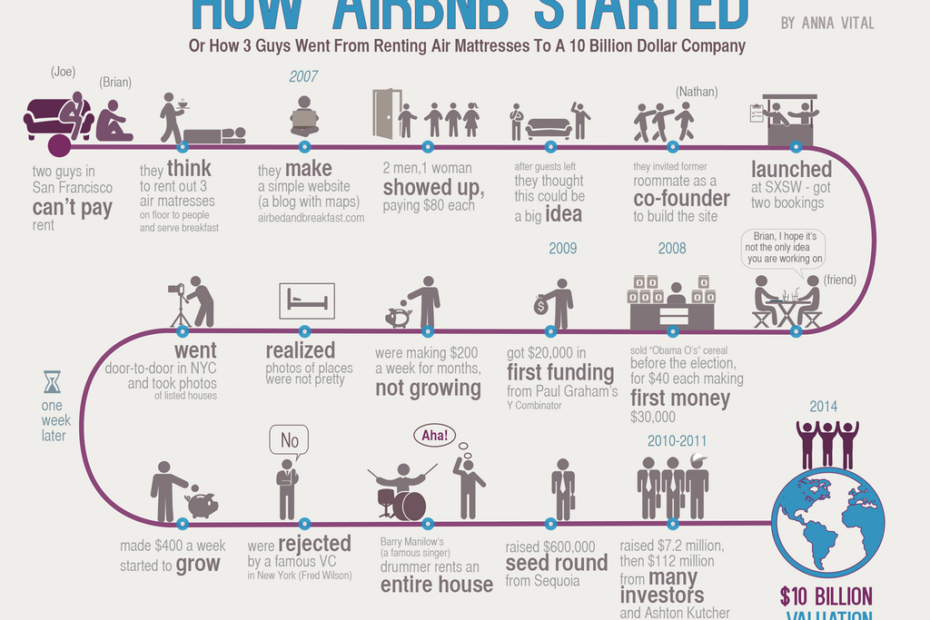There are many products and services that people nowadays consider being normal; however, they were deemed “absurd” when being launched. Amazon was founded in 1994 as an online book store when people still remained sceptical about the safety of using credit cards for online purchasing, but today it is the leading online retailer in the world. Another fascinating example is Airbnb which was established in 2007 by two men in San Francisco who could not pay their rental and decided to provide several airbeds on a floor for people coming to the town for a design conference when all hotel rooms were sold out. At that time, people were taught at school that strangers were equal to dangers, so the idea of letting them temporarily stay in people’s private houses was totally ridiculous and hazardous. However, what is seen in current days is that Airbnb is a giant online marketplace for sharing homes and spaces. The picture below depicts the story of how Airbnb started and became a $10 billion company in 2014.

Source: https://blog.adioma.com/how-airbnb-started-infographic/
After all, every business starts with ideas which can be discovered anywhere. However, not every idea can be translated into a successful business. Some of those drown, some that swim and a few luckily achieve success right from the first time. Usually many problems arise after the startups begin to be run, and the team fails to resolve them. Over the years, the focus has shifted to ideating and problem solving in order to maintain the business stability. Design thinking process does exactly that.

Ideation is one part of this model. Therefore, it is vital that ideation techniques are flexibly applied in business. Take Airbnb again as an example. It started with an “absurd” but innovative idea. After 2 years since the foundation, in 2009, it got $20,000 in the first funding by Paul Graham’s Y Combinator; however, nothing has changed. The company just made $200 per week for months. When Airbnb realised that photos of places were not pretty that made people sceptical about booking lists, they went door-in-door in New York City, spoke to the hosts and took better pictures of the listings. Just one week later, the revenue started to increase by 100% (to $400 per week), and the host and guest were both satisfied.
This case follows all the steps in the design thinking process. It is consequently necessary that the process is implemented constantly in every task within organisations’ activities, especially the ideation process, because an initial brilliant idea or initiative is not enough to make sure that the business can be run and expanded in the long run.
Understanding the necessity that the SMEs master their skills and capabilities in running their business, including implementing the ideation techniques, IDEA project is expected to develop an innovation, creativity and multidisciplinary collaboration awareness and engagement methodology and of a practical and user-friendly tool for SMEs sharply practicing these techniques.
Follow and keep track with our up-to-date news on this website and Facebook page: https://www.facebook.com/IDEAErasmusplusproject
REFERENCE
[1] https://cloudnames.com/entrepreneurship/10-ridiculous-startup-ideas-that-became-a-success/
[2] https://belitsoft.com/ideation-in-startups-how-successful-entrepreneurs-draw-inspiration

 Polski
Polski Português
Português Español
Español Italiano
Italiano